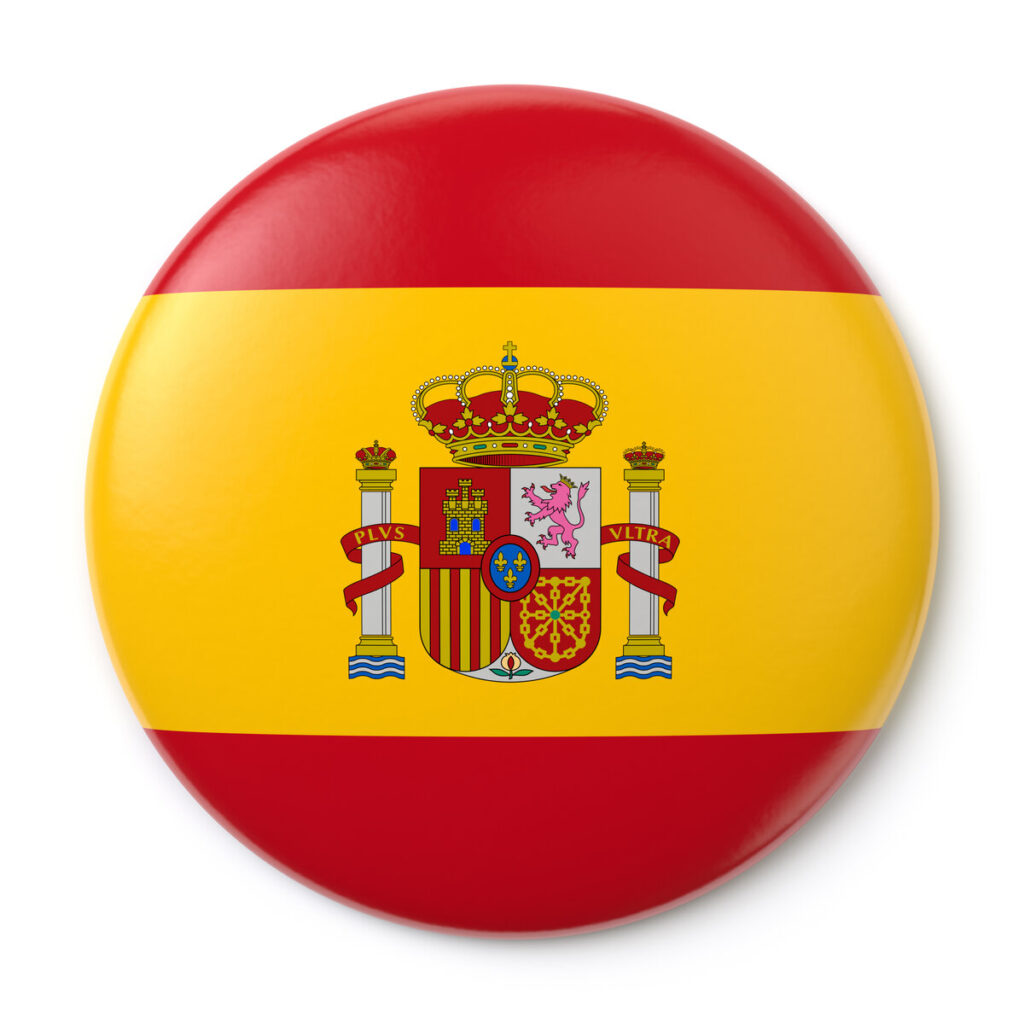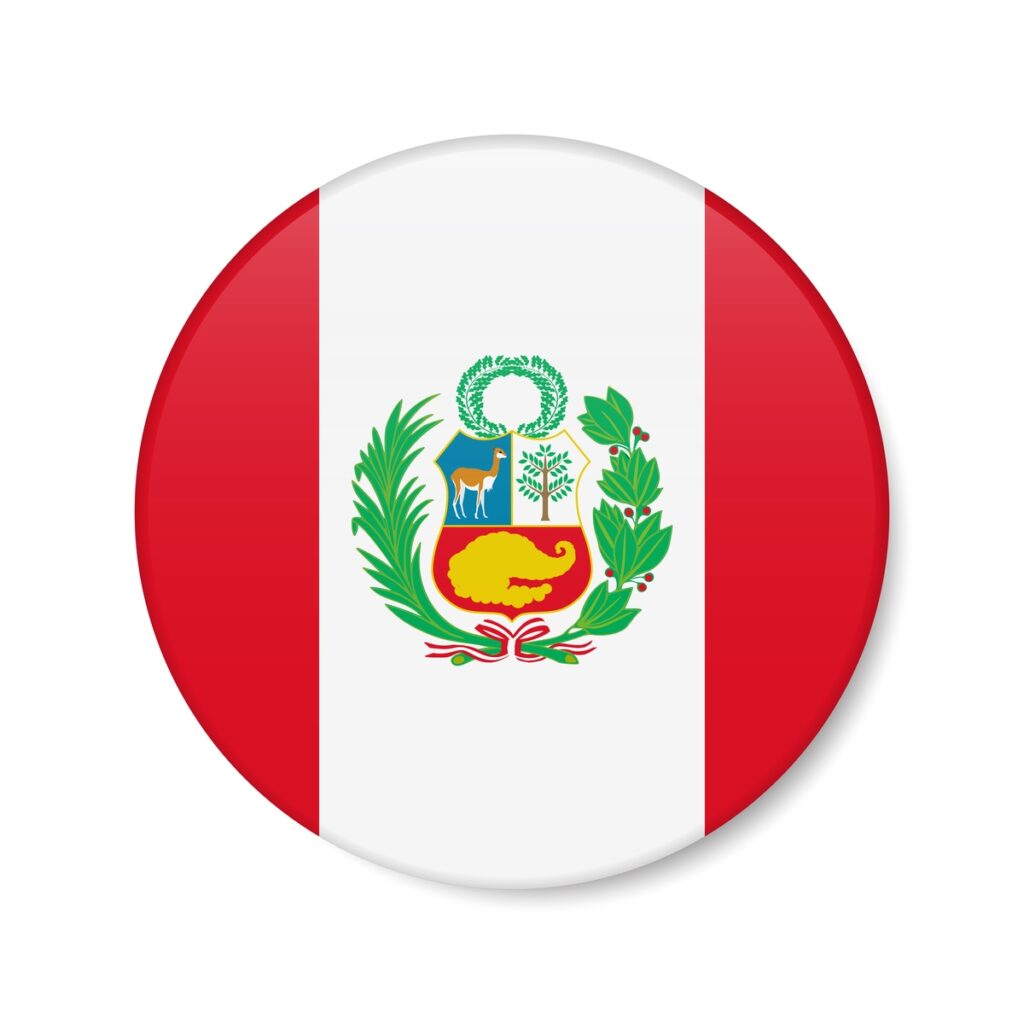23/01/2025
This article might just earn you money.
Table of Contents
There are two certainties in life: Death and taxes. IE University can do nothing about the former. However, we can offer finance management tips on how to do your taxes in peace. First we’ll look into good ways of managing your money and matters during tax season. Then we’ll take a round-the-world tour so that you’re in the know on various international tax processes. Don’t thank us—just do your taxes on time and don’t bring them up at parties. Because taxes are boring.
Why it’s important you read this article
I really messed up. Let me explain: I moved to Spain some years ago. Now, back in the UK, if someone employs you then you don’t have to file your own return. It gets done for you. This is not the case in Spain. It’s actually quite straightforward here, but the problem was it took me three years to check it out. And guess what? I owed the government thousands. And I owed them thousands more than I would have if I’d checked earlier.
Now, could list all the parts that weren’t my fault? Yes. But they frankly don’t matter. If you owe it, you owe it. And let me tell you—that icy grip on your chest when the bill comes in? Not fun. Which is why it’s important to be over-informed. Think you have the basics covered? NOT ENOUGH. Study, study, study.
Maybe you’re new to the tax thing. Perhaps you’ve filed returns for many years and this feels like old news. Maybe you’re a nomadic professional who’s enjoying life in a new country and the last thing you want to worry about is form-filling. Whatever you are—this article can help. The thing is, getting good at tax stuff has real ROI. It’s the base of a winning mindset around money. And you can save where you’d never have expected. Sound good? Read on.
Finance management tips to help do your taxes
Doing your taxes can be daunting. Paperwork, receipts, codes. It’s tiring (and tedious to write about, too). Fortunately, we’re going to make the process easier for you. On a side-note, if you’re one of our MBA students, you might be able to enjoy our programs with certain tax incentives. If you’re not studying with us (you should be) then you should definitely check out our MBA programs. Our Global Online MBA is perfect if you want to keep working while you study, while the International MBA is in-person in Madrid. If you’re not quite at MBA level, then our Master in Finance is your next best bet. They’re all great for developing the financial know-how you’re after.
Anyway, let’s knuckle down and see some techniques to do your tax returns the right way.

Give yourself time
Start the tax process early. Gather your documents and review your finances in January and February. Do so when you’re feeling relaxed and work at it bit by bit. You’ll make the process of understanding what you owe or what you’re entitled to much easier—and you’ll likely improve the outcome of your tax return.

Organize yourself early
This could be one of your new year resolutions: Be diligent about keeping all receipts, tax forms (W-2s, 1099s, etc.), and relevant income documentation organized. This can be as simple as buying one plastic folder and getting in the habit of getting a copy of your purchases. Relevant documentation could include charitable donations, student loan interest, mortgage interest and medical or business-related expenses.

Learn the difference between deductions and credits
It sounds deadly, but it’s worth knowing what deductions and credits you’re eligible for. With “standard deduction vs. itemizing”, you should understand if your itemized deductions like medical expenses will add up to exceed the standard deduction. You can then judge which type of deduction you want to apply—if your itemized deductions would be less than standard deduction, it’s not worth the effort of registering them. Alternately, see which tax credits reduce your tax liability.

Brush up on tax laws
This is important. Tax laws can change each year, so our finance management tips would definitely include checking current policies. New tax legislation could affect your filing and land you in big trouble. Equally, you could benefit from credit eligibility. You should also check state and local taxes, depending on location. Federal and state taxes may have different requirements. Remember—a little research goes a long way.

Get the basics right
There are core pillars when knowing how to do your taxes. The absolute must-knows include your personal information such as Social Security number and bank account numbers. You should also quintuple-check (at least) that your income is reported correctly, that you’ve accounted for all deductible expenses and that you’ve signed your tax return. Oh, and set a few reminders in your calendar to make sure you have it all done on time.

Be sure of your filing status
Your filing status can be pivotal in tax rates, deductions and credits. Bear in mind any key changes in your life. This includes having children, buying a house or changing your income.

Keep a copy
Whether you’re filling in paperwork or doing your taxes online, we have one big recommendation: Keep a copy! Your filed tax return or any related forms or receipts are extremely important. Hold onto them for at least seven years to cover your back from audits. Tax isn’t sexy—but the ROI on giving it due attention will be tenfold.
How to do your taxes in Spain
In Spain, you call personal income tax “Impuesto de Renta sobre las Personas Físicas” (IRPF). Both residents and non-residents must pay IRPF to the Agencia Tributaria from their income. Spain has a pay-as-you-earn (PAYE) system which sorts taxable income into two categories: general taxable income and savings income. If you’re married, you can choose to file your taxes either jointly or separately.
Spain taxes savings and investment income at different rates than employment income. Rates for savings income are progressive, starting at 19% for the first €6,000. Rental income has a 19% tax for EU residents and a 60% deduction on residential property rental. Employment income rates range from 19% to 47% depending on your bracket and the rules of your region. If you’re an “autónomo” you’ll have to file quarterly returns. These tax returns are obligatory during your first year of residency but not necessary in subsequent years if your income is lower than €22,000 per annum.
If you’re not an EU resident, you’ll be paying a flat 24% on rental income without any expense deductions. As for income tax, that’s only applied to what you earn in Spain with the same 24% rate and 19% for investment income. Remember that Spain has double taxation agreements with over 80 countries, so it pays to be well-informed before you get taxed twice on the same income. Deductions can be earned through pension contributions, employment-related benefits and charitable donations.
Get everything sorted online with the Agencia Tributaria website. You can also file in person by booking an appointment at a local tax office via the link below. You can also book a call and have someone help file your return. Remember that late filings will incur penalties and they’ll grow with the delay—don’t be like me.

How to do your taxes in the US
In the US you typically file taxes on or before April 15th. You’ll need different forms depending on your circumstances. Everything goes through the Internal Revenue Service (IRS), who have all the information you need on deadlines for federal and state filings.
As we touched on earlier, filing status is a big part of the US taxation system. There are five primary options: Single, Married Filing Jointly, Married Filing Separately, Head of Household and Qualifying Widow(er). They all have different effects within your tax bracket and the deductions and credits you’re eligible for. It’s your choice if you file separately or jointly when you’re married, but know that the choice will impact your claim on certain credits.
The most common forms you’ll need include: W-2 (for employees), 1099-NEC (for self-employed income) and receipts for deductible items like mortgage interest and charitable donations. Check with your employers or document distributors if you haven’t received your forms by March.
The IRS’ Free File is your best option for adjusted gross income (AGI) under $79,000. If you earn more, you should either hire a professional or use paid online software like TurboTax, TaxAct or H&R Block. File your return either online or by mailing a paper form. You’ll get faster refunds by E-filing and providing your direct deposit information. Paying the IRS owed money quickly is the best way to avoid penalties.

How to do your taxes in Germany
Germany’s top dog for handling federal finance is the Bundesministerium der Finanzen (BMF). The due date to file your return is July 31st. But you can extend the deadline by seven months if you use a tax consultant. If you’re not obligated to file a return (we’ll explain in the next paragraph) you can still do so voluntarily up to four years later. You’ll then receive a “Bescheid” within two to six months, which is a form explaining any refunds you’re entitled to the following year.
If you’re an employee of a company then you probably don’t need to file a return. Your employer will have been paying your taxes throughout the year and there will be a record of that. However, if you have additional income over €410 or you’ve received wage replacement benefits, then you will need to submit a tax return. Certain couples may also need to file, depending on their situation.
Forms you may need to include: “Lohnsteuerbescheinigung” for your annual wage and tax statement from your employer; “ESt 1” as your main income tax declaration form; “Anlage N” for work-related expenses; “Anlage Vorsorgeaufwand” for pension contributions; “Anlage S” for freelance income; “Anlage EÜR” for freelancers whose annual income exceeds €17,500; “Anlage GeSt” for self-employed tradespeople; “Umsatzsteuererklärung” for VAT returns, if applicable.
If you’re employed and want to submit for deductions, you can do so on paper or electronically via ELSTER. If you’re a freelancer, you must use ELSTER. You’ll also need to keep detailed records of all earnings and expenses in case the tax office asks for them. If you’re self-employed and also charge VAT, you’ll likely have to submit an annual VAT declaration (Umsatzsteuererklärung) too.

How to do your taxes in the Netherlands
The Netherlands tax administration is called Belastingdienst and is responsible for collecting on behalf of the state. The deadline for returns is usually May 1st. In most cases, being an employee of a company means you don’t have to file a return yourself. However, if you run a sole proprietorship (eenmanszaak) or general partnership (vof) then you’ll need to do so each year to report earnings.
If you receive a tax return letter from the Belastingienst then you’ll need to submit a return regardless of your situation. It’s also mandatory if you owe more than €52 or are due €17 in tax credits. You can get everything sorted on the webpage “Mijn Belastingdienst”.
Calculate your income by subtracting allowable expenses like business-related costs and amortization from your total income. The rates will be based on your income, assets and applicable deductions. The Chamber of Commerce (KVK) has great tools to help do your calculations. Non-residents earning income from a Dutch business may need to file if they’re registered with the Netherlands Chamber of Commerce.
You can reduce taxable income with deductions including business expenses, interest on debts, health insurance premiums, charitable donations and education costs. If you’re an entrepreneur then you may also qualify for investment credits, though you’ll need to confirm your entrepreneur status with the administration via tools like “OndernemersCheck”.
If you’re an expat in the Netherlands, remember they have tax treaties with many countries to prevent double taxation!
Important links

How to do your taxes in Switzerland
The Federal Tax Administration (FTA) oversees procedures in Switzerland. But collection and returns are handled through your cantonal tax administration. Company employees don’t usually need to bother filing a return. Those who do will have their deadline on March 31st, though some cantons have different dates. Foreign nationals with a settlement permit (Permit C) file the same return as Swiss citizens. Other foreign employees will need to pay at source.
If you’re self-employed, you’ll need to report your earnings. This also applies to employees who have additional income from freelancing. However, a letter from your cantonal tax administration means submitting a return is mandatory. If you owe or are owed money from the administration, you will similarly have to submit a return. This can be done online via your cantonal administration’s platform.
When filing the return, you’ll need to declare your income and report earnings from employment, self-employment or any secondary jobs. Employees simply enter their net annual salary from their salary certificate. Retirees need to include their OASI and pension income. Taxable income reduces with deductions from job-related expenses like travel, meals, health insurance premiums and charitable donations. You can also claim social deductions based on family, elderly care and disabilities. Each canton will have its own guidelines for these deductions. Debts from mortgages or loans can reduce your taxable wealth.

How to do your taxes in Peru
Peru’s taxation system is overseen by the Superintendencia Nacional de Administración Tributaria (SUNAT). With the deadline for filing your return falling on March 31st, it pays to get informed early. In Peru, both residents and non-residents must file a personal return. Residents pay on both domestic and foreign income. Non-residents only pay on income earned within Peru.
Income rates in Peru vary based on residency. Residents pay a progressive rate from 8% to 30% based on their income. Income is measured in “UIT”. The value for Peru UIT in 2025 is S/5.350, which is new. Non-residents, on the other hand, pay a flat rate of 30% on their Peruvian income. Non-residents can’t claim any deductions or tax breaks.
On top of income tax, Peru holds 18% VAT on certain goods and services. Properties are taxed based on the value of real estate. Peru does not have a wealth tax or inheritance/gift tax. Social security contributions come from both employers and employees. Employers contribute 9% of an employee’s salary. Employees, meanwhile, contribute 13% to a pension fund.
Make sure you have your 11-digit RUT number ready when filing your return online at SUNAT!

How to do your taxes in Ecuador
The Servicio de Rentas Internas (SRI) oversees domestic taxation in Ecuador, with deadlines ranging from April 9th-28th and a self-assessment system in play. Both residents and non-residents have tax obligations, though rules differ. Residents pay tax on their worldwide income, while non-residents only pay on Ecuadorian income. Non-residents may still owe even if they don’t meet the income threshold.
Income tax rates in Ecuador are progressive for residents, ranging from 0% to 37%, depending on your income level. Non-residents pay tax at a flat 25% rate on Ecuadorian income. Additionally, Ecuador imposes a 12% VAT on goods and services and a real estate tax of 0.025% to 0.3% on property values. Corporate tax for businesses is 25%, depending on residency status.
Social security contributions are mandatory. Employees pay 9.45% of their salary, while employers contribute 12.15%. Capital gains taxes on investments or real estate may be exempt. Ecuador also has an inheritance tax ranging from 5% to 10% for foreign nationals, with a $72,000 exemption for the 2023 tax year.

Studying at IE Business School
The business world is changing fast. New opportunities and challenges present themselves every day. You want to be the first one to act. At IE Business School, you’ll have the opportunity to focus your business acumen. You’ll also sharpen your skills in leadership, strategy and innovation.
Want to be part of a global network of success stories? Follow the link below and see how our master’s programs could be the start to a better, more satisfied life. You may never have to worry about taxes again.
Benjamin is the editor of Uncover IE. His writing is featured in the LAMDA Verse and Prose Anthology Vol. 19, The Primer and Moonflake Press. Benjamin provided translation for “FalseStuff: La Muerte de las Musas”, winner of Best Theatre Show at the Max Awards 2024.
Benjamin was shortlisted for the Bristol Old Vic Open Sessions 2016 and the Alpine Fellowship Writing Prize 2023.








